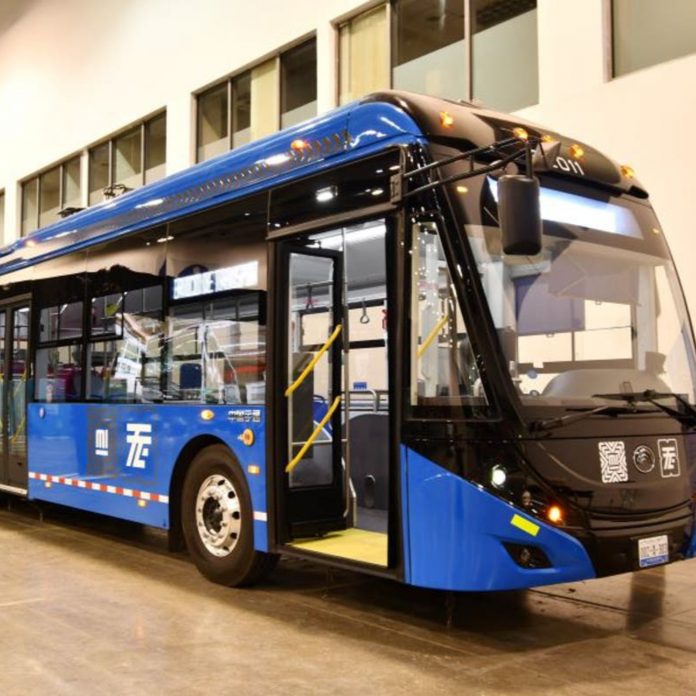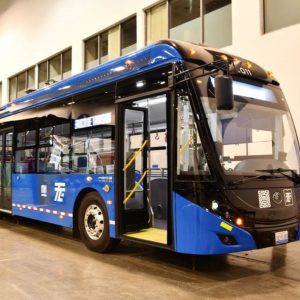Oando Electric Bus
By Our Reporter
“Be the start of something that is good, revolutionary and powerful. Everything after that is a bonus!’
The OANDO group and its team of experts must have had the above quote by Carlos Wallace in mind when they embarked on the journey to revolutionise motoring in Nigeria and introduced the first set of fuel less vehicles into system.
Determined to be part of the revolution to end air pollution which ultimately has been made worse by the emission of toxic elements destroying our planet, the Oando Clean Energy Limited (OCEL) made history with its inroad into the transportation business in Lagos State.
The organisation, in April 2023 acquired and took delivery of an undisclosed number of electric vehicles from Chinese carmaker, Yutong Bus.
OCEL is the clean energy arm of Oando Plc, largely owned by Wale Tinubu. His company had earlier signed a Memorandum of Understanding (MoU) with the Lagos State Government through the Lagos Metropolitan Area Transport Authority (LAMATA) on April 28, 2022.
Following the delivery of the vehicles to OCEL, curious Nigerians have been asking questions about the viability of electric vehicles in the country. Expectedly, this elicited a robust response from the company when it took to its twitter handle express its readiness to kick-start the novel project.
The company said: “Following our recent announcement about introducing electric mass transit buses in Lagos State, we noticed many questions about the viability of electric vehicles in our terrain, battery lifespan, and more. But don’t worry; we have got you covered!
“So, let us challenge ourselves to reach new heights, to discover new horizons, and to achieve greatness.
“For it is through our willingness to dream big and take bold action that we can create a better tomorrow for ourselves and those around us.
“Great ideas have the power to transform the impossible into the possible. They inspire us to see the world in a new light and to push beyond our boundaries.”
The company also took time to explain how the fuelless vehicles would be put to use in Nigeria. “Our electric buses can travel up to 280km on a full battery charge, which is equivalent to a round trip from Ajah to Ibadan!
Our buses are built to conquer tough terrains and traffic.
With reliable battery and motor systems, reinforced suspension, and
thicker body panels, our buses are rugged enough to withstand harsh
environments.
Plus, our regenerative braking system
allows us to operate efficiently in
stop-and-go traffic.
“Additionally, the regenerative braking system helps the battery to last longer and reduces maintenance costs.”
Meanwhile, commenting on the acquisition and deal between the state and his firm, Wale Tinubu, who is the Chairman of OCEL, said: “The arrival of our electric mass transit buses and development of an EV infrastructure ecosystem is a reminder that the only way to remain ahead of the curve is by being unafraid to break new ground and consistently looking for opportunities to leapfrog.
“Public-Private Partnerships have been critical to getting the project to this point and will continue to fuel our expansion across the entire country.
“The commencement of this project gives us a platform to showcase to other States what is possible and open the door for engagements on bespoke solutions to suit their local needs as well as act as a model to be adopted by other organizations looking to venture into sustainable transportation.”


